Natural Fertilizer for Tomatoes: A Complete Guide
Introduction
Tomatoes are one of the most beloved and widely grown vegetables in home gardens worldwide. Whether you’re growing them in containers on your patio or in a full-scale garden, ensuring your tomato plants get the right nutrients is key to achieving a bountiful harvest. While synthetic fertilizers are often used to boost growth, many gardeners prefer natural fertilizer for tomatoes, which is eco-friendly, sustainable, and safer for both the environment and consumers. In this article, we’ll explore various natural fertilizers for tomatoes and how they can help you grow healthier, tastier fruits.
Why Use Natural Fertilizer for Tomatoes?
Before diving into the best natural fertilizer for tomatoes, it’s essential to understand why natural fertilizers are becoming increasingly popular among gardeners. Not only are they sustainable and eco-friendly, but natural fertilizers also promote healthier soil ecosystems, which in turn result in more vigorous plant growth.
Here are a few reasons to consider using natural fertilizer for tomatoes:
- Sustainability: Unlike synthetic fertilizers, which are typically derived from non-renewable sources like petroleum, natural fertilizers come from organic materials. By using them, you’re supporting a circular system that recycles nutrients within the environment.
- Soil Health: Synthetic fertilizers might boost plant growth, but they often degrade soil structure and microbial life over time. Natural fertilizer for tomatoes improves soil texture, increases water retention, and boosts the population of beneficial organisms like earthworms and mycorrhizal fungi.
- Long-Term Benefits: Natural fertilizers provide a slow, steady release of nutrients, whereas synthetic fertilizers can cause a burst of growth followed by nutrient depletion. By using natural options, your soil will become more fertile over time, supporting healthier plants year after year.
- Safety for Humans, Pets, and Wildlife: Many chemical fertilizers can leach into groundwater, potentially harming local wildlife or even affecting drinking water. Natural fertilizer for tomatoes is non-toxic and is safer for both humans and animals, making it a great option for gardeners with pets or children.
- Enhanced Flavor: Many gardeners believe that tomatoes grown with natural fertilizer for tomatoes have a richer, more complex flavor compared to those grown with synthetic fertilizers. This is likely due to the balanced nutrient profile provided by organic materials.
Essential Nutrients for Tomato Plants
To grow healthy, productive tomato plants, it’s important to understand their nutritional needs. Tomatoes are considered heavy feeders, meaning they require a significant amount of nutrients, especially during their fruiting phase. The key nutrients that tomatoes need are:
- Nitrogen (N): This nutrient promotes leafy growth. However, too much nitrogen can lead to lush, green plants with little fruit. A balance is needed to encourage both foliage and fruit production.
- Phosphorus (P): Phosphorus is essential for root development and fruit production. It helps the plant convert energy, which is crucial during flowering and fruiting stages.
- Potassium (K): Potassium plays a vital role in overall plant health, disease resistance, and fruit quality. It ensures that the plant can efficiently move water, nutrients, and carbohydrates throughout its system.
- Calcium: Calcium is critical for cell wall structure in plants. Without enough calcium, tomatoes are prone to blossom end rot, a common disorder where the bottom of the fruit turns brown and mushy.
- Magnesium: Magnesium is the central atom in chlorophyll, the compound that allows plants to photosynthesize. Without enough magnesium, your plants may suffer from yellowing leaves, known as chlorosis.
Now that we’ve covered the basic nutrient requirements, let’s look at some of the best natural fertilizer for tomatoes.
1. Compost
Compost is perhaps the most well-known natural fertilizer for tomatoes, and for good reason. It’s made from decomposed organic matter like vegetable scraps, leaves, grass clippings, and other plant materials. Compost adds a wide range of nutrients to the soil, including nitrogen, phosphorus, potassium, and micronutrients. It also improves soil texture, making it easier for plant roots to absorb water and nutrients.
How to Use:
- Mix compost into the soil before planting your tomatoes to give them a nutrient-rich start. Throughout the growing season, apply a 1-2 inch layer of compost around the base of your tomato plants as a mulch. This will provide slow-release nutrients as well as help retain soil moisture.
2. Aged Manure
Manure from animals like chickens, cows, and horses is an excellent natural fertilizer for tomatoes, especially when it has been composted. Chicken manure is particularly rich in nitrogen, while cow and horse manure provide a balanced mix of nutrients. Be sure to use well-composted manure, as fresh manure can burn plants due to its high ammonia content.
How to Use:
- Incorporate aged manure into the soil before planting. You can also top-dress your plants with manure during the growing season by placing it around the base of the plants, avoiding direct contact with the stems.
3. Worm Castings
Worm castings, also known as vermicompost, are the waste produced by earthworms. They are incredibly nutrient-dense and packed with beneficial microorganisms that help improve soil health. Worm castings provide essential nutrients like nitrogen, phosphorus, and potassium, but they also enhance the microbial life in the soil, which helps plants absorb nutrients more effectively.
How to Use:
- Mix worm castings into your planting soil or use them as a top dressing. You can also make worm tea by steeping castings in water, then using the liquid to water your tomato plants.
4. Fish Emulsion
Fish emulsion is a liquid fertilizer made from fish byproducts. It’s a fast-acting fertilizer that is rich in nitrogen and also contains trace amounts of phosphorus and potassium. Fish emulsion is especially beneficial during the early stages of plant growth when your tomatoes need a boost of nitrogen to develop strong stems and leaves.
How to Use:
- Dilute fish emulsion in water according to the manufacturer’s instructions, then apply it to the soil or as a foliar spray every two to three weeks. Fish emulsion works quickly, so it’s great for giving your plants a mid-season nutrient boost.
5. Bone Meal
Bone meal is a slow-release fertilizer made from ground animal bones. It is particularly rich in phosphorus and calcium, making it an excellent choice for supporting root development and preventing blossom end rot. Bone meal is ideal for tomato plants because it provides a steady supply of nutrients throughout the growing season.
How to Use:
- Mix bone meal into the soil at planting time to ensure that your plants have access to phosphorus and calcium as they grow. Be careful not to overapply, as too much phosphorus can inhibit the absorption of other essential nutrients like zinc and iron.
6. Epsom Salt
Epsom salt is a natural source of magnesium and sulfur, two nutrients that are vital for healthy tomato plants. Magnesium is essential for photosynthesis, while sulfur helps with the formation of certain amino acids and vitamins in plants. If your tomato plants have yellowing leaves or show signs of magnesium deficiency, Epsom salt can be a quick and effective remedy.
How to Use:
- Dissolve 1 tablespoon of Epsom salt in a gallon of water and use it to water your plants once a month. Alternatively, sprinkle a small amount of Epsom salt around the base of your tomato plants and water thoroughly.
7. Seaweed Extract
Seaweed extract is a natural fertilizer made from ocean-grown algae and sea plants. It is rich in trace elements, growth hormones, and amino acids that stimulate plant growth and improve resistance to pests and diseases. Seaweed extract also contains alginic acid, which helps improve soil structure by binding together soil particles.
How to Use:
- Dilute seaweed extract in water according to the package instructions, then apply it as a foliar spray or soil drench every two to three weeks. Seaweed extract can be used at any stage of growth, making it a versatile addition to your fertilizing routine.
8. Coffee Grounds
Used coffee grounds are an excellent source of nitrogen and also contain small amounts of potassium and phosphorus. They can help improve soil structure, attract earthworms, and deter pests like slugs and snails. If you’re a coffee drinker, recycling your used coffee grounds into your garden is a simple and effective way to boost your tomato plants.
How to Use:
- Sprinkle used coffee grounds around the base of your tomato plants or mix them into the soil. You can also add coffee grounds to your compost pile or brew a liquid fertilizer by steeping them in water for 24 hours.
9. Grass Clippings
Fresh grass clippings are a nitrogen-rich fertilizer that can give your tomato plants a boost, especially during the early stages of growth. Grass clippings decompose quickly and add organic matter to the soil, which improves its ability to retain moisture and nutrients.
How to Use:
- Apply a thin layer of grass clippings around the base of your tomato plants as mulch. Be careful not to pile the clippings too thickly, as this can create a mat that blocks air and water from reaching the soil.
10. Eggshells
Eggshells are a fantastic natural source of calcium, which is crucial for preventing blossom end rot in tomatoes. While eggshells break down slowly, they offer a long-term solution for calcium-deficient soils.
How to Use:
- Crush eggshells into small pieces and mix them into the soil at planting time. You can also scatter crushed eggshells around the base of your plants as a slow-release calcium source or add them to your compost pile.
11. Wood Ash
Wood ash from untreated wood is a great source of potassium, calcium, and trace minerals. However, it should be used sparingly, as too much wood ash can raise the pH of your soil, making it too alkaline for tomatoes, which prefer slightly acidic soil.
How to Use:
- Apply wood ash lightly around the base of your tomato plants or mix it into the soil before planting. Be sure to test your soil’s pH before applying large amounts, as overuse can lead to imbalances in soil acidity.
12. Banana Peels
Banana peels are rich in potassium, which is essential for tomato plants during the fruiting stage. Potassium helps improve fruit quality, increase resistance to diseases, and promote strong stems. Banana peels also contain small amounts of phosphorus and calcium.
How to Use:
- Bury banana peels in the soil around your tomato plants or chop them into small pieces and add them to your compost pile. You can also steep banana peels in water to create a potassium-rich liquid fertilizer for your plants.
Creating Custom Natural Fertilizer Blends for Tomatoes
One of the benefits of using natural fertilizer for tomatoes is the flexibility to create custom blends that suit your specific gardening needs. By combining different natural fertilizers, you can provide a well-balanced nutrient supply tailored to your tomato plants’ growth stages. Here are a few examples:
- Early Growth Fertilizer: For healthy, strong plant growth, create a mixture of compost, worm castings, and fish emulsion. This blend will provide the nitrogen and other nutrients necessary for strong stem and leaf development.
- Fruiting Fertilizer: As your plants start to produce flowers and fruits, switch to a blend of bone meal, banana peels, and seaweed extract. This mix provides the phosphorus and potassium that tomatoes need for fruit production and ripening.
- Ongoing Care Fertilizer: To maintain your plants’ health throughout the season, consider a mixture of compost, Epsom salt, and coffee grounds. This blend will give your plants a steady supply of essential nutrients without overwhelming them.
Conclusion
Natural fertilizer for tomatoes offers a sustainable and effective way to feed your tomato plants while promoting long-term soil health. From compost and aged manure to bone meal and banana peels, these organic options provide a wide range of essential nutrients that tomatoes need to thrive. By using natural fertilizer for tomatoes, you’ll not only improve the quality and taste of your tomatoes but also contribute to a healthier garden ecosystem. Over time, your soil will become more fertile, and your plants will grow stronger and more resilient.
Gardening with natural fertilizer for tomatoes is a rewarding practice that helps you work in harmony with nature. Whether you’re an experienced gardener or just starting, these natural fertilizers will support your tomato plants’ growth and lead to more abundant harvests year after year.


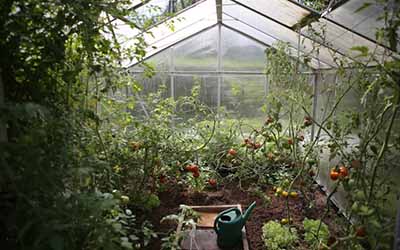


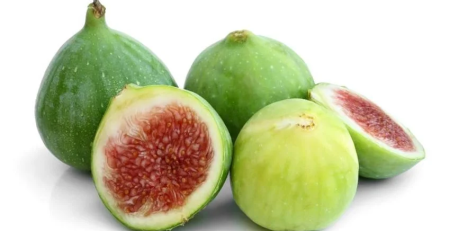



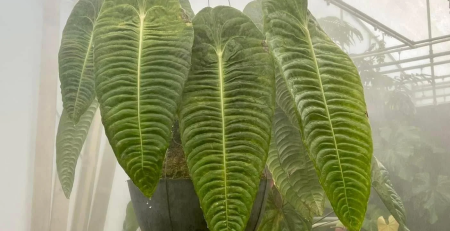

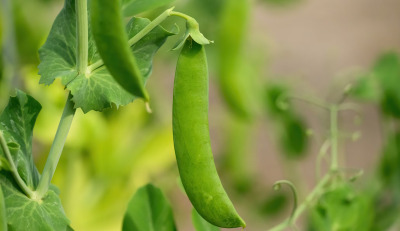
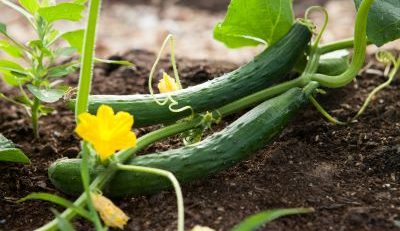
Leave a Reply